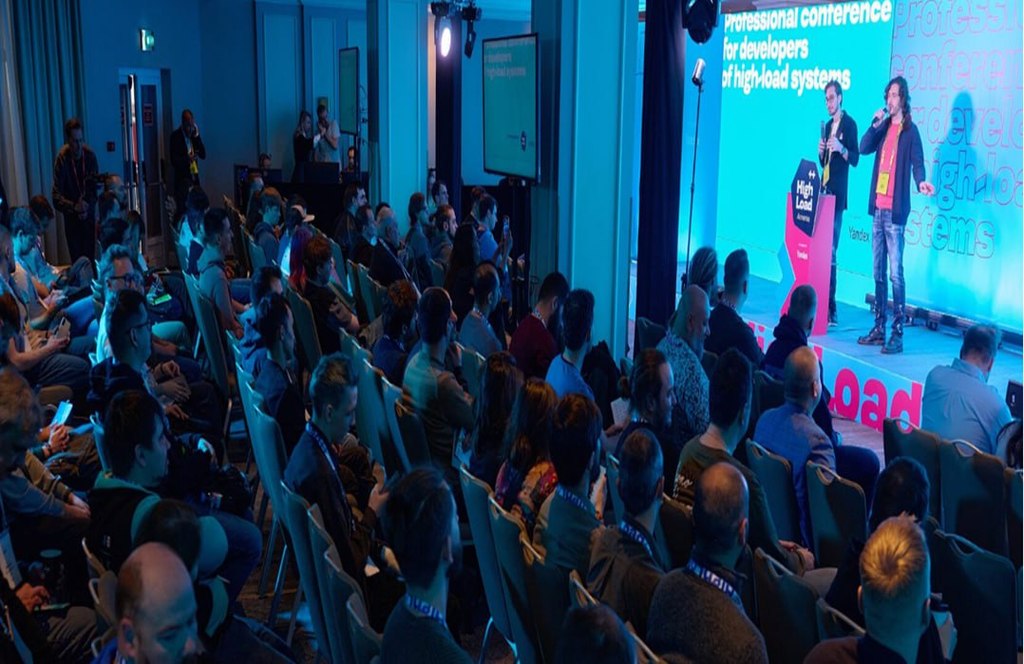Do you want to be a speaker of HighLoad++ Armenia? Apply now
Dear friends!
The team of HighLoad++ Armenia 2023, are honored to invite you to submit a talk to share your expertise with the IT community. The conference will take place in Yerevan, on December 14-15, 2023.
There will be:
🔹 TOP speakers from leading IT companies the most relevant and trending topics.
🔹 3 tracks, 40+ talks in the English language.
🔹 700+ оffline participants.
🔹 Largest IT-afterparty.
The tickets are already available. Join the professional IT-community!

Buy a ticket
We are looking for people who can present case studies of high-load projects. We expect that the experiences you will share might be practically applied in our participants’ workflows. The conference will include cutting edge topics of high performance systems:
🔹 High Availability and Scalability;
🔹 Databases and storage systems;
🔹 Software architecture;
🔹 BigData and Machine Learning;
🔹 Neural networks;
🔹 DevOps and maintenance;
🔹 Hardware;
🔹 Security;
🔹 Enterprise Systems Performance;
🔹 Highly specific sections (clouds, video streaming, search engines, billings, RTB);
🔹 Platform engineering;
🔹 Testing.
You will find the detailed information about the CfP process below the link.
Apply
We offer benefits for speakers
Each speaker will receive full access to the conference, including accommodation at the venue hotel throughout the event. To prepare for the performance, speakers will go through several run-throughs and a coaching session from the Program Committee members. The day before the conference, there will be a welcome dinner hosted for speakers and the Program Committee.
The travel expenses covered at economy class rates and visa support will be provided. To ensure a seamless experience, we will arrange for your transfer to and from the airport. You may rest assured that our team will be there to support you at every stage of your participation.
Apply
And now we are glad to introduce you to the first talks that have already been accepted in the program of HighLoad++ Armenia.
Talks accepted into the HighLoad++ Armenia program
First Aid Kit for C/C++ server performance
 Vladislav Shpilevoy
Vladislav Shpilevoy
VirtualMinds
Enhancing server performance typically entails achieving one or more of the following objectives: reduce latency, increase number of requests per second (RPS), and minimize CPU and memory usage. These goals can be pursued through architectural modifications, such as eliminating some network hops, distributing data across multiple servers, upgrading to more powerful hardware, and so forth. This talk is not about that.
Vladislav will categorize the primary sources of code performance degradation into three groups:
🔹 Thread contention. For instance, too hot mutexes, overly strict order in lock-free operations, and false sharing.
🔹 Heap utilization. Loss is often caused by frequent allocation and deallocation of large objects, and by the absence of intrusive containers at hand.
🔹 Network IO. Socket reads and writes are expensive due to being system calls. Also they can block the thread for a long time, resulting in hacks like adding tens or hundreds more threads. Such measures intensify contention, as well as CPU and memory usage, while neglecting the underlying issue.
The speaker will present a series of concise and straightforward low-level recipes on how to gain performance via code optimizations. While often requiring just a handful of changes, the proposals might amplify the performance N-fold.
The suggestions target the mentioned bottlenecks caused by certain typical mistakes. Proposed optimizations might render architectural changes not necessary, or even allow to simplify the setup if existing servers start coping with the load effortlessly. As a side effect, the changes can make the code cleaner and reveal more bottlenecks to investigate.
WebAssembly from the inside out
 Edoardo Vacchi
Edoardo Vacchi
Tetrate
A WebAssembly runtime is an embeddable virtual machine. This allows platforms to dynamically load and execute third-party bytecode without rebuilding their OS and Arch-specific binary. While WebAssembly is a W3C standard, there are a lot of mechanics required to do this, and many critical aspects are out-of-scope, so left to the implementation.
Most presentations discuss WebAssembly at a high level, focusing on how end users write a program that compiles with Wasm, with a high-level discussion of how a virtual machine enables this technology. This presentation goes the other way around. This talk overviews a function call beginning with bytecode, its translation to machine code, and finally how it is invoked from host code.
The implementation used for discussion is the wazero runtime, so this will include some anecdotes that affect these stages, as well as some design aspects for user functions that allow them to behave more efficiently. However, we will also indulge in a high-level comparison with other runtimes and similar technologies that in the past tried to solve the same problem.
When you leave, you'll know how one WebAssembly runtime implements function calls from a technical point of view.
Ozon Performance Testing Service - HighLoad by Schedule
 Ivan Prihodko
Ivan Prihodko
Ozon Tech
🔹 What is {Performance testing in Ozon.
🔹 What components do they have?
🔹 How bad arch of test-data collector component on start, broke production after increase of loads after several years. And how they fix it;
🔹 How they change architecture of service to can Ozon Central Stress test, with 1000+ load generators starts at same time.
🔹 How they change load generators to utilize CPU in more efficient manner.
Buy a ticket
Let’s make this year’s conference even better!
See you at the conference!




